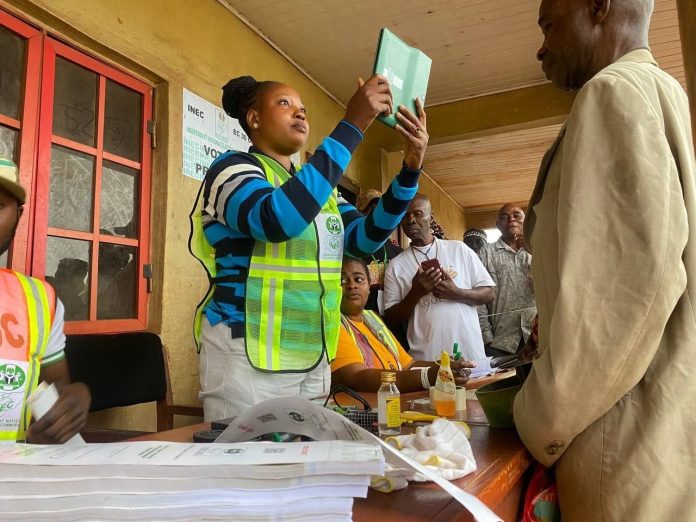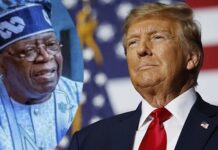From Eniola Phillips
In the realm of democracy, election observers are often viewed as guardians of fairness and transparency. They play a critical role in ensuring that electoral processes adhere to established standards, thereby bolstering public trust in the outcomes. However, there are instances when these observers inadvertently transform from symbols of credibility into albatrosses that undermine the very integrity they are meant to uphold.
The term “albatross” suggests a burdensome presence, and in the context of election observation, it indicates that these entities can become liabilities rather than assets in the electoral process.
In Nigeria, as in many countries, the electoral process is far from perfect. However, the efforts of the Independent National Electoral Commission (INEC) to enhance the integrity of elections signal a commitment to progress and reform that deserves recognition. INEC has recently strengthened the electoral process, boosting public confidence and reshaping perceptions of elections as genuine opportunities for citizens to elect their leaders, rather than mere announcements of predetermined outcomes. Despite the desperate attempts of some unscrupulous politicians to undermine the process, INEC remains resolute in ensuring that the people’s votes count.
In this context, it is crucial for all stakeholders, especially election observers who are expected to be neutral, to support INEC rather than discredit the electoral process. Creating fear and doubt among citizens can threaten the achievements made over the past 25 years since the return of democracy in Nigeria.
Election observers must exercise caution in making sweeping statements about the electoral process. Overreaching their authority or miscommunicating findings can contribute to a narrative of distrust. For instance, declaring an election “not credible” based on anecdotal evidence or isolated incidents can overshadow the larger, more nuanced picture of the election. This sensationalism can lead to public disillusionment, causing citizens to question the legitimacy of the entire electoral system.
A recent example involves Yiaga Africa, an accredited observer for the Edo 2024 governorship election. The organisation made a sweeping statement claiming the election failed integrity tests and that results were manipulated, basing its findings on reports from only 150 of the 4,519 polling units where observers were deployed. How can one draw conclusions from approximately 3.3% of the total? Given Yiaga’s previous controversies, particularly during the Osun State governorship election when a government official claimed his party won based on Yiaga’s Election Result Analysis Dashboard (ERAD) report, there were heightened expectations for a more thorough analysis this time around. As a result, when Yiaga issued sweeping statements about the recent Edo election, it drew considerable scrutiny and disappointment from observers who anticipated a more nuanced and evidence-based approach.
In the 2023 General Election, Yiaga questioned the results in 2 or 3 states, which does not affect the validity of the election. Yet, in Edo they called a press conference to harp on minor matters and ignore the bigger picture.
This concern echoes the fears articulated by Judith Kelley in her report, “The Good, the Bad, and the Ugly: Rethinking Election Monitoring.” Kelley questioned whether monitors’ statements could inadvertently legitimise manipulated elections, thus doing more harm than good. In a similar breath, desperate politicians can exploit observers’ statements to delegitimize credible elections. In Nigeria, we have witnessed political actors swiftly seizing on election observers’ remarks to discredit outcomes that did not favour them. This tactic not only sows confusion but also undermines public trust in the electoral process. Often, these actors find themselves unable to substantiate their claims in court—the appropriate venue for addressing grievances regarding the electoral process. Such actions highlight the importance of responsible communication by observers, as their words can have far-reaching implications for the perception of electoral integrity.
Observers can fall into the trap of making sweeping statements due to inadequate training. Without proper preparation, they may misinterpret electoral events, leading to confusion and misinformation that jeopardises the credibility of the entire election. Questions also arise about the level of training provided to observers engaged by organisations like Yiaga. Claims of political bias further call into question the integrity of their reports. When observers appear to have an agenda, their findings risk being dismissed as extensions of partisan politics rather than impartial assessments.
The primary purpose of election observation is to assess the quality of elections and provide recommendations for reform, not to discredit the process or act as a parallel agency. Organisations like Yiaga must adhere to this role to maintain their credibility. As a respected Nigerian organisation, it is vital for Samson Itodo to uphold the neutrality and integrity that have brought Yiaga this far, avoiding the pitfalls that have befallen other civic organisations.
In conclusion, while election observers hold the potential to enhance the credibility of electoral processes, they must remain vigilant against becoming albatrosses. Their role demands a commitment to impartiality, thorough training, and effective communication to navigate the complexities of modern democracies. By fostering transparency and accountability, observers can truly support the electoral process, rather than undermine it.
Phillips, an advocate for good governance, writes from Ibadan.




